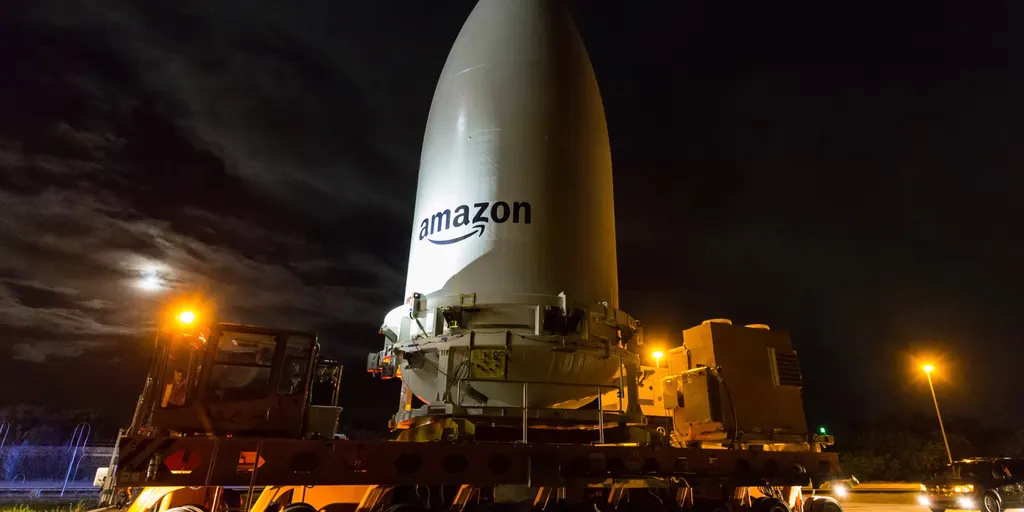Launch Day Disappointment
Amazon Kuiper launch delay Amazon’s ambitious plan to join the space internet race hit a temporary roadblock yesterday when bad weather forced the company to postpone the launch of its first batch of Kuiper internet satellites. The United Launch Alliance (ULA) rocket, loaded with 27 satellites, was all set for liftoff from Cape Canaveral, Florida, when Mother Nature had other ideas.
“Stubborn cumulus clouds” and strong winds proved too challenging for the launch team, pushing the countdown outside its planned window. ULA officials eventually called it quits for the evening, announcing they would set a new launch date later.
What Is Project Kuiper, Anyway?
Amazon Kuiper launch delay For those who haven’t been following Amazon’s space adventures, Project Kuiper is the retail giant’s answer to bringing high-speed internet to every corner of the globe. Announced about six years ago, the plan involves building a constellation of satellites in low Earth orbit – within 1,200 miles of our planet’s surface.
These satellites aren’t just floating WiFi routers. They’re designed to provide high-speed, low-latency internet connections to consumers, businesses, and governments alike. Users would connect through square-shaped terminals installed at their locations.
Racing Against Starlink and the Clock
Amazon Kuiper launch delay Amazon isn’t the first to this particular space race. Elon Musk’s SpaceX has already launched around 8,000 Starlink satellites, giving them a substantial head start. With Musk now serving as an advisor to President Trump and overseeing the Department of Government Efficiency (DOGE), Starlink’s government connections have only grown stronger.
Time isn’t on Amazon’s side either. The Federal Communications Commission (FCC) has set a deadline: Amazon must have half of its planned constellation – that’s 1,618 satellites – in orbit by July 2026. With this first launch now delayed, the pressure mounts.
What’s Next for Amazon’s Space Internet?
Amazon Kuiper launch delay Despite the weather delay, Amazon remains optimistic. The company has already begun preparing satellites for its next mission, which will also use ULA’s Atlas V rocket. Once the first launch succeeds, Amazon plans to rapidly increase its production and deployment rates.
Commercial service is expected to begin later this year, assuming the satellites make it to their orbital positions without further delays.
Why This Matters to You
For everyday internet users, especially those in rural or underserved areas, Amazon Kuiper launch delay Amazon’s entry into the satellite internet market could mean more options and potentially lower prices through increased competition.
Businesses might find new connectivity solutions for remote operations, while governments could expand their digital reach to previously disconnected regions.
The Waiting Game
For now, Amazon and space enthusiasts alike will have to wait for clearer skies over Cape Canaveral. The launch delay is a reminder that even with all our technological advancements, nature still gets the final say when it comes to reaching for the stars.
Amazon Kuiper launch delay When the weather finally cooperates, those 27 satellites will mark Amazon’s first real step toward becoming a player in the new space economy – and perhaps your future internet provider.

